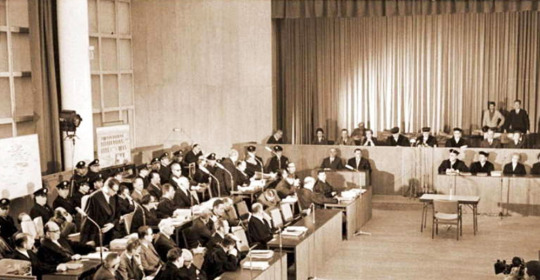#Vergangenheitsbewältigung
Photo

🏴☠️ #vergangenheitsbewältigung Selten haben eine freundschaftliche Umarmung, ein wenig Alkohol und große Freude ein St. Pauli T-Shirt besser ausgefüllt, oder vielleicht war’s auch einfach nur mein Bauch🫃🏻 (ok mindestens die Hälfte macht bestimmt die Körperhaltung aus 😇). Es war wirklich eine riesige Freude, mit meinen alten Weggefährten von „Die Schröders“ ein grandioses Wochenende in meiner alten (zweiten) Heimat Hamburg zu verbringen. In den 90ern gingen wir ein gutes Stück Weg zusammen mit unzähligen Gigs und Tourneen, Business-Meetings, Album & Video-Produktionen, Radio & TV-Auftritten, kleinen und großen Open Airs, Fan & Promi-Alarm, Schweiß & Tränen, Sex & Drugs & Rock‘n Roll halt… so einiges davon in Österreich, wo „Die Schröders“ Mitte der 90er durch die Decke gingen. Das war eine aufregende Zeit. Über 20 Jahre haben wir uns seitdem nicht gesehen. In unserem quasi-Haus-und-Hof-Club (ich hab schließlich damals auch um die Ecke im Uni-Viertel gewohnt) LOGO haben die Schröders letzten Freitag und Samstag ihre vielleicht oder zumindest vorerst letzten beiden Konzerte und ich bin froh, dass ich dabei war. Ich hab in eine intensive Phase meiner Vergangenheit wieder gesehen, gehört und gefühlt und es war wunderbar. Danke Jungs!!! 🙏 @jens_burger_fotografie @stresemannmarc @saschadrums @svenbonse & Oli 🖤🖤🖤 @logo.hamburg #dieschröders #logo #hamburg #rocknroll #punkrock #gig #live #party #backstage #music #sowardasdamals #fcstpauli #livelongandprosper🖖 R.I.P. Maja 🖤 (hier: Logo Hamburg) https://www.instagram.com/p/Cnw-ymGsOUw/?igshid=NGJjMDIxMWI=
#vergangenheitsbewältigung#dieschröders#logo#hamburg#rocknroll#punkrock#gig#live#party#backstage#music#sowardasdamals#fcstpauli#livelongandprosper🖖
2 notes
·
View notes
Text
Wie man nach einer Trennung weitermacht
Es ist schwer, nach einer Trennung wieder auf die Beine zu kommen. Ich weiß das aus eigener Erfahrung. In jeder meiner Beziehungen dachte ich, dass es dieses Mal klappen würde. Ich war überzeugt, dass mein Verhalten richtig war und dass mich irgendwann jemand so lieben würde, wie ich bin. Doch im Laufe der Zeit habe ich erkannt, dass Kommunikation der Schlüssel zu jeder erfolgreichen Beziehung…

View On WordPress
#Beziehungstipps#emotionaler Schmerz#Fernbeziehung#Intimität#Kommunikation#Neuanfang#persönliche Entwicklung#Selbstfindung#Trennungsschmerz#Vergangenheitsbewältigung
0 notes
Text
History at your feet in Berlin
If you're walking around Berlin, please remember to look down.
BERLIN
When I arrived in this city for the first time in 2012, I remember being struck by the sight of a subtle historical memorial within steps of the train station I’d just exited: a double row of cobblestones marking the path of the Berlin Wall. Tuesday, a different small-scale memorial caught my eye after exiting from a different station: three brass plates embedded in the sidewalk to record…

View On WordPress
#accountability#Berlin#Germany#historical markers#History#Holocaust#Stolpersteine#stumbling stones#Vergangenheitsbewältigung
1 note
·
View note
Text
【淇園漫步】一顆德國文壇之星殞落了 ——馬丁·瓦爾澤以96高齡逝世
馬丁·瓦爾澤(Martin Walser,1927—2023),這位在德國文壇享譽甚隆的小說家和劇作家於7月28日去世,享年96。將近百歲的作家橫跨兩個世紀,經歷了二次世界大戰和分裂又統一的德國,自然看盡風雲變化、世事滄桑。他是位勤奮多產的作家,著作等身,連在高齡階段都幾乎年年有新著。筆者於七十年代到德國,那時他已經成名,而我最早接觸的德國文學除了亨利希·伯爾(Heinrich Böll,1917~1985)之外就是他了。雖然他不是我鍾愛的作家,但是因早期讀到他的劇本《黑天鵝》(Der schwarze Schwan, 1964),對我的啟蒙甚多,因此想略為追憶一些閱讀經驗。
青少年時代在戰爭中渡過
瓦爾澤的童年和青少年時代是在波登湖畔渡過的,地處德國、瑞士、奧地利三國交界處的湖泊景緻、靜謐優美,他那本自傳體的小說《跳躍的噴泉》(Ein springender…

View On WordPress
#Ein liebender Mann#Marcel Reich-Ranicki#Martin Walser#Vergangenheitsbewältigung#反猶太主義#奧斯維辛審判#廖天琪#批評家之死#文學教皇#馬丁·瓦爾澤#黑天鵝
0 notes
Text
Mitte Mai 1945: Sie sind wie Raubtiere über meine Mutter und meine Großtante hergefallen. (Letztgenannte starb an den Spätfolgen) Sie haben meinem Großvater mit dem Gewehrkolben die Zähne ausgeschlagen, das Vieh aus den Ställen getrieben und das Haus geplündert. Sie haben meinem 92 jährigen Urgroßvater ins Gesicht geschlagen und ihm die Taschenuhr vom Körper gerissen ... Ein Grund, weshalb ich mich bei einem Thema auffallend zurückhalte. Dieses Trauma hat auch mein Leben als Nachkriegskind negativ beeinflusst.
(Bekenntnisse)
#Mai 1945#Kriegsende#Vergewaltigung#Plünderung#Mißhandlung#Kriegstrauma#Vergangenheitsbewältigung#Katharsis#Nachkriegskind#Trauma weitergegeben#Bekenntnisse#Klartext#Soldateska
0 notes
Text
Tag 2808 / Heftiger Tränen Ausbruch, mehrmals hintereinander, gar nicht aufhören können
Eine Woche ohne Tablette.
Mir ging’s mal so schlecht, dass ich Angst hatte, abends einzuschlafen, weil ich so schlecht geschlafen habe, so schlecht geträumt, weil ich wusste, dass ich schlecht einschlafen kann und dass es eine Qual wird, bis ich endlich schlafe und dass ich gar nicht schlafen will, weil es wieder so schwierig wird aufzuwachen.
Und das ist wirklich besser geworden, dass ich, seit ich nüchtern bin, besser schlafe, dass ich nicht mehr so viele Albträume habe, dass ich erholter aufwache, dass ich trotzdem immer noch Schwierigkeiten habe, in den Tag zu kommen, aufzustehen. Aber ich habe keine Angst mehr, ich mir graut es nicht, da ist kein Unbehagen: Ich werde gleich schlafen.
Das war so ein schlimmer Zustand Ende der Nullerjahre in der Hafenstadt, dass ich auch immer gezuckt habe, weil irgendwelche unangenehmen Bilder vor mein inneres Auge kamen. Und meine Mutter lag manchmal neben mir im Bett. Und das war noch vor dem ersten stationären Aufenthalt.
Und warum kommt das jetzt alles wieder hoch? Weil ich diese Kündigungsunterlagen gefunden habe oder weil ich jetzt auch noch parallel das Mittel absetze und wieder weiß, warum ich nicht gerne aufräume. Weil die Dinge, die ich dann raushohle beim Aufräumen, die machen was mit mir. Und das will ich nicht. Ich will im Jetzt bleiben und nicht in die Vergangenheit gebeamt werden. Ich könnte jetzt einfach sagen: Okay, ich schreddere das. Aber das ist wirklich eine Gerichtssache gewesen Agatha Abstinent gegen Agentur Ipwig, Arbeitsgericht Hafenstadt.
Das war eine große Sache.
/
OneRepublic
West Coast
https://www.youtube.com/watch?v=2z36xE7ZRgA
1 note
·
View note
Text
Hallo zusammen!
Es wird Zeit für eine weitere Buchvorstellung.
Das Buch, über das ich heute sprechen möchte, heißt "Los!" und ist das Romandebüt von Ylvie Wolf.
https://www.lovelybooks.de/autor/Ylvie-Wolf/LOS-2983820733-w/
In dem Buch geht es um eine junge Frau, Melina, die nach Jahren in ihren Heimatort zurückkehrt, den sie vor Jahren überstürzt verlassen hat. Außer ihrer besten Freundin Tammy weiß niemand, was damals geschehen ist, nicht einmal ihr damals bester Freund Erik.
Als sie Erik zufällig wieder trifft, branden alte Gefühle wieder auf. Aber immer noch steht das Geheimnis der damaligen Ereignisse zwischen ihnen. Und dann, als alles endlich gelöst und eine gemeinsame Zukunft möglich scheint, taucht plötzlich eine Person auf, die, durch seine Handlungen in einer schicksalshaften Nacht, der Auslöser für Melina's Flucht war. Und er sinnt auf Rache.
Meiner Meinung nach ist der Roman sehr gelungen.Natürlich ist er aufgrund ihrer Länge (oder eher Kürze) eher etwas für Zwischendurch. Aber trotz der doch recht knappen Form, schafft die Autorin es doch recht gut, Spannung zu erzeugen oder im Leser Gefühle für die handelnden Personen zu erwecken. Man hat eindeutig Mühe, den Roman zur Seite zu legen, was auch an dem flüssigen Schreibstil liegt.
Alles in allem ein sehr gelungenes Romandebüt.
Allerdings muss ich auch noch eine kleine Triggerwarnung anfügen: Da es in dem Buch um das Thema Vergewaltigung geht, könnte das Buch für einige Personen nicht geeignet sein.
1 note
·
View note
Text
In Subcontractors of Guilt: Holocaust Memory and Muslim Belonging in Postwar Germany, Esra Özyürek describes the way that German politicians, officials and journalists, now that the far right is in the ascendant, have been cranking up the old mechanism of sanitising Germany by demonising Muslims. In December 2022, German police foiled a coup attempt by Reichsbürger, an extremist group with more than twenty thousand members, which was planning an assault on the Bundestag. Alternative für Deutschland, which has neo-Nazi affiliations, has become the country’s second most popular party, partly in response to economic mismanagement by the coalition led by Olaf Scholz. Yet despite the undisguised antisemitism of even mainstream politicians such as Hubert Aiwanger, the deputy minister-president of Bavaria, ‘white Christian-background Germans’ see themselves ‘as having reached their destination of redemption and re-democratisation’, according to Özyürek. The ‘general German social problem of antisemitism’ is projected onto a minority of Arab immigrants, who are then further stigmatised as ‘the most unrepentant antisemites’ in need of ‘additional education and disciplining’.
...
Netanyahu, too, has learned from Germany’s postwar efforts at whitewashing. In 2015 he claimed that the Grand Mufti of Jerusalem had persuaded Hitler to murder rather than simply expel the Jews. Three years later, after initially criticising a move by the Law and Justice Party in Poland to criminalise references to Polish collaboration, he endorsed the law making such references punishable by a fine. He has since legitimised Shoah revisionism in Lithuania and Hungary, commending both countries for their valiant struggle against antisemitism. (Efraim Zuroff, a historian who has helped bring many former Nazis to trial, compared this to ‘praising the Ku Klux Klan for improving racial relations in the South’.) More recently, Netanyahu accompanied Elon Musk to one of the kibbutzim targeted by Hamas, just days after Musk tweeted in support of an antisemitic conspiracy theory. Since 7 October, he has seemed to be reading from the Eichmann trial script. He regularly announces that he is fighting the ‘new Nazis’ in Gaza in order to save ‘Western civilisation’, while others in his cohort of Jewish supremacists keep up a supporting chorus. The people of Gaza are ‘subhuman’, ‘animals’, ‘Nazis’.
...
In a more unnerving illustration of the postwar German-Israeli symbiosis, the German health minister, Karl Lauterbach, approvingly retweeted a video in which Douglas Murray, a mouthpiece of the English far right, claims that the Nazis were more decent than Hamas. ‘Watch and listen,’ retweeted Karin Prien, deputy chair of the Christian Democratic Union and education minister for Schleswig-Holstein. ‘This is great,’ Jan Fleischhauer, a former contributing editor at Der Spiegel, wrote. ‘Really great,’ echoed Veronika Grimm, a member of the German Council of Economic Experts. The Süddeutsche Zeitung, which in 2021 ‘outed’ five Lebanese and Palestinian journalists at Deutsche Welle as antisemites, with equally flimsy evidence exposed the Indian poet and art historian Ranjit Hoskote as a calumniator of Jews for comparing Zionism with Hindu nationalism. Die Zeit alerted German readers to another moral outrage: ‘Greta Thunberg openly sympathises with the Palestinians.’ An open letter from Adam Tooze, Samuel Moyn and other academics criticising Jürgen Habermas’s statement in support of Israel’s actions provoked an editor at the Frankfurter Allgemeine Zeitung to claim that Jews have an ‘enemy’ at universities in the form of postcolonial studies. Der Spiegel ran a cover picture of Scholz alongside his claim that ‘we need to deport on a grand scale again.’
...
Susan Neiman, who wrote admiringly of Vergangenheitsbewältigung in Learning from the Germans (2020), now says she has changed her mind. ‘German historical reckoning has gone haywire,’ she wrote in October. ‘This philosemitic fury ... has been used to attack Jews in Germany.’ In Never Again: Germans and Genocide after the Holocaust, which examines the German response to mass killings in Cambodia, Rwanda and the Balkans, Andrew Port suggests that their ‘otherwise admirable reckoning with the Holocaust may have unwittingly desensitised Germans. The conviction that they had left the rabid racism of their forebears far behind them may have paradoxically allowed for the unabashed expression of different forms of racism.’
(source)
44 notes
·
View notes
Text
Der 8. Mai war ein Tag der Befreiung. Er hat uns alle befreit von dem menschenverachtenden System der nationalsozialistischen Gewaltherrschaft.
May 8th was a day of liberation. It freed us all from the inhuman system of National Socialist tyranny.
Richard von Weizsäcker (1920 – 2015), German politician, sixth president of the Federal Republic of Germany
Background: This statement was revolutionary at its time. Until the early 1980s, the (West) German society was ambivalent with regards to the end of World War II. Although it was generally acknowledged that it was the end of a tyrannic dictatorship that had committed unprecedented crimes against humanity, there was still a lingering feeling of defeat present in large parts of the (West) German population instead of gratefulness for the liberation (and the subsequent help from and reconciliation with the nations of the world). This started to change after Richard von Weizsäcker's speech of May 8, 1985, before the Federal Diet of the Federal Republic of Germany. It was a milestone in the West German Vergangenheitsbewältigung, the continually ongoing process of coming to terms with the atrocities of Nazi Germany.
49 notes
·
View notes
Text



Thanks to some Twitter discussion tonight it made me think more deeply about Winter Schnee, the eldest of the Schnee children, daughter of Willow & Jacques. We know from her backstory that she abandoned the Schnee family hierarchy, abandoning her claim as Schnee Company Heiress, which then fell to her younger sister Weiss, one of the 4 chief protagonists of the web series RWBY.
From a character design standpoint, I've always thought Winter's Eyebrows are something she paints black with thick mascara as part of her military grooming practices, e.g. are not naturally black. But I never stopped to think WHY until tonight.....then it HIT me....she wears her black mascara because consciously or even unconsciously she's trying to emulate her surrogate father figure, her commanding officer, General James Ironwood, and his naturally black eyebrows and facial hair. His head of hair betrays some grey, salt and pepper on the sides, but it was once solid black. He probably dyes his beard and eyebrows so they remain solid black leaving only the sides of his head with a bit of grey showing. In Winter's complete rejection of Jacques, she altered her appearance to be more like the new father figure she replaced him with, James Ironwood. This is probably an uncomfortable truth that would come up if Winter ever had time to go to therapy, but alas, with a war to stop the End of the World on, that's sadly unlikely.
But if Winter did take a moment to reflect on it, I think in that case it would mean if we see Winter again in RWBY Volume 10, we might see her revert back to her natural white eyebrow color, like her sister Weiss and the rest of her family. Or maybe, even if she does recognize what she's doing and why, she'll ultimately decide to keep them black as the new head of what remains of the Atlas Military chain of command in exile. She was Ironwood's right hand, after all.
Atlesians are going to have a hell of a time with their Vergangenheitsbewältigung nach der Untergang (Wrestling with the past after the Fall of Atlas), especially those who made it to refuge & exile in Vacuo....but also the remaining outpost of Atlesian culture and technology, aka Argus Base. Hopefully Caroline Cordovan will read the writing on the wall and throw her support behind Winter and not try to become a rival in a power struggle for who leads the legitimate Atlas government after Ironwood. Though given her proclivities, she just might.
#rwby#winter schnee#willow schnee#jacques schnee#weiss schnee#atlas#Atlesians#fathers#father figures
9 notes
·
View notes
Text
This difficulty is most profound, for obvious reasons, in Germany. Learning from the Holocaust that there is no greater moral imperative than strenuous opposition to antisemitism is a cornerstone of German Vergangenheitsbewältigung. Germans of Turkish or Arab backgrounds, who are expected to absorb this lesson, have been perceived by their ethnic German educators as responding with the “wrong” feelings during visits to Holocaust memorial sites. Rather than adopting the expected German perspective of inherited guilt, their identification with Jewish victims is often heightened by feelings of fear that the racism they themselves have experienced in Germany could conceivably be taken to such extremes, while also sometimes offset by envy for the vastly greater public concern with antisemitism than with the forms of racism they face. These responses call attention to failures of anti-racism in Germany in the hallowed context of the nation’s collective atonement for its past. The expectation of a specific, didactically guided empathetic response to the Holocaust – an expectation by no means unique to Germany, but particularly acute there – forecloses recognition of these different emotional reactions of Germans with immigrant backgrounds. They are instead found lacking in the form of empathy considered constitutive of responsible Germanness.
—Adam Sutcliffe, "Whose Feelings Matter? Holocaust Memory, Empathy, and Redemptive Anti-Antisemitism," from the Journal of Genocide Research
#literature#quotes#academic writing#adam sutcliffe#journal of genocide research#antiracism#germany#antisemitism
6 notes
·
View notes
Text
Der Vorfall um Gabriel Le Senne, den Präsidenten des Balearen-Parlaments, ist eine entscheidende Woche für die politische Landschaft Mallorcas. Am 27. September 2024 wird Le Senne als Beschuldigter wegen eines sogenannten Hass-Delikts vor einem Gericht in Palma aussagen müssen. Dies ist das Ergebnis eines politischen Eklats, der während einer Parlamentssitzung im Juni seinen Anfang nahm.
Der Kontext des Vorfalls
Die Debatte, die zu diesem Aufruhr führte, drehte sich um einen Vorschlag der rechtspopulistischen Partei Vox zur Abschaffung eines Gesetzes zur Vergangenheitsbewältigung. Im Protest gegen diesen Vorschlag zeigten Mitglieder der Opposition Fotos von Opfern des Franco-Regimes. Der Moment eskalierte, als Le Senne selbst ein Bild zerriss, was landesweit für Empörung sorgte. Der Vorfall symbolisiert widerkehrende Spannungen in der balearischen Politik, insbesondere in Bezug auf den Umgang mit der Geschichte der Franco-Diktatur.
Le Vertrauensverlust und die politische Reaktion
Die balearische Ministerpräsidentin Marga Prohens von der Volkspartei (PP) hat Le Sennes Rücktritt gefordert, jedoch bisher keine konkreten Schritte zur Abwahl eingeleitet. Dies zeigt, wie heikel die politische Lage ist und wie wichtig es für die Parteien ist, eine Balance zu finden, um ihre Koalition zu erhalten, ohne die Stimmen der oppositionellen Linken anzuziehen. Prohens scheint damit zu rechnen, dass die rechtspopulistische Position auf den Balearen weiter bestehen bleibt.
Die Konsequenzen für Le Senne
Gabriel Le Senne hat über einen Sprecher angekündigt, dass er die Vorladung für erwartet hat, und er bleibt dabei, dass die Anschuldigungen gegen ihn unbegründet sind. Er sieht sich als Opfer einer provokanten Aktion anderer Politiker im Parlament, die seiner Meinung nach die Grenzen zum respektvollen Umgang mit der parlamentarischen Neutralität überschritten haben.
Das öffentliche Interesse und die weitere Entwicklung
Die Vorladung hat nicht nur rechtliche, sondern auch gesellschaftliche Relevanz. Der Vorfall hat viele Bürger mobilisiert und es gibt bereits Aufrufe zu Protesten am 20. Juni, um gegen Le Sennes Verhalten zu demonstrieren. Die Entfernung von Symboliken des Regimes wird immer mehr zum Brennpunkt in der spanischen Gesellschaft, und die kommenden Tagen werden entscheidend sein, um die Position der PP und die Zukunft von Le Senne in diesem Kontext zu betrachten.
Die Parlamentssitzung am 3. September wird als weiterer Test angesehen, bei dem über eine mögliche Abwahl des Präsidenten abgestimmt werden soll. Auch die Volkspartei wird bei dieser Debatte zeigen müssen, wie sie zu Le Senne steht und ob sie das Vertrauen ihrer Wählerschaft weiterhin ernst nehmen kann.
0 notes
Text
Tag 2793 / Die Vergangenheit schreddern
/
KT Tunstall
The Mountain
https://www.youtube.com/watch?v=BhmMh9mZq-U
0 notes
Text
Volkstumspolitik im 21. Jahrhundert: Real und ergebnisorientiert
Die „Alte Volkstumspolitik“ ist (in Anlehnung an die „Alte Rechte“, der Amerikaner würde „cuckservative“ sagen) strikt rückwärtsgewandt: Die eigene Position wird ausschließlich mit nostalgischem Blick auf die Geschichte definiert.
Nur: Die Vergangenheit kann gar nicht bewältigt werden, sie ist ganz einfach vorbei. „Vergangenheitsbewältigung“ ist eigentlich die Strategie der politisch…
#Architektur#Ästhetik#Bauen#Bauingenieur#Bauingenieur Südtirol#Bauingenieurwesen#Baukultur und Ästhetik#Baurecht und Bauwirtschaft#Bausubstanz#Demanega#Design und Werkstoffe#Digitalisierung#Energie und Wasserbau#Engineering#Geologie#Holz und Holzbau#Infrastruktur und Infrastrukturplanung#Ingenieur#Innovation#Kultur#Lebensqualität#Michael Demanega#Mobilität#Nachhaltigkeit#Natur#Naturgefahren#Planung#Projekte#Projektentwicklung#Ressourcen
0 notes
Text
Vergangenheitsbewältigung als Zukunftsverdrängung? – Der Nachgeschmack der Gedenkfeiern
NachDenkSeiten: »In den letzten Tagen wurde mit großem Pomp und Gloria des Débarquement in der Normandie (englisch: „D-Day“), der amphibischen und luftgestützten Militäroperation der Alliierten im Zweiten Weltkrieg, gedacht, mit der vor 80 Jahren, am 6. Juni 1944, die Befreiung Westeuropas von der Naziherrschaft begann. Unser Autor hat, bei aller Liebe zum Geschichtsbewusstsein, zunehmend Bauchschmerzen mitWeiterlesen http://dlvr.it/T82XHV «
0 notes
Text
Foundational Study:
-Ancient Germania & Rome
-”Germani” “Germanic” “German” (Ethnolinguistics)
-Holy Roman Empire
-Enlightenment
-Christianity
Direct Study:
-Romanticism & Napoleon (Brother’s Grimm), middle ages were cool, enlightenment meant middle ages were bad
-German Imperial Nationalism & regionalism, defeating France, “Barbarians across the Rhine”
-Austria Hungary
-1914-1918
-Humiliation of WW1
-Volkish movement, Odinism, blood and soil, Lebensraum, Septemberprogramm, Drang nach Osten
-Nazism
-Reconstruction of German identity after WW2. Vergangenheitsbewältigung
The House of Hohenzollern came to rule over the territories of Brandenburg and later Prussia through a series of strategic marriages, inheritance, military alliances, and political maneuvering during the late medieval and early modern periods. Their rise to power in these regions did not involve seizing control from the Poles or the Teutonic Order directly, but rather a gradual process of expansion and consolidation of territories.
Here is an overview of how the House of Hohenzollern came to rule Brandenburg and Prussia:
Acquisition of Brandenburg: The House of Hohenzollern's connection to Brandenburg began with Elector Frederick I of Brandenburg (1371-1440). He acquired Brandenburg through a combination of inheritance and military support from the Holy Roman Emperor Sigismund. Frederick I married Elisabeth of Bavaria-Landshut, who was the heiress to the Duchy of Bavaria-Landshut. As part of the marriage agreement, the Wittelsbachs (rulers of Bavaria-Landshut) renounced their claims to Brandenburg, allowing Frederick I to become the Margrave of Brandenburg in 1415.
Expansion of Territories: Frederick I's son, Elector Frederick II of Brandenburg (1413-1471), known as Frederick the Iron, continued to strengthen the Hohenzollerns' position in Brandenburg. He actively expanded the territories under his control through strategic alliances and military campaigns.
Acquisition of Prussia: The House of Hohenzollern acquired the Duchy of Prussia in 1618 when Elector John Sigismund of Brandenburg inherited it from his cousin, Duke Albert Frederick of Prussia. This inheritance brought the Duchy of Prussia, which was previously under Polish suzerainty, into the possession of the Hohenzollerns.
Royal Coronation: In 1701, Elector Frederick III of Brandenburg, also known as Frederick I of Prussia, proclaimed himself "King in Prussia," establishing the Kingdom of Prussia. This title was recognized by the Holy Roman Emperor and other European powers.
Further Expansion and Rise to Power: Over the centuries, the Hohenzollerns continued to expand their territories and influence through various wars, alliances, and marriages. They played significant roles in the unification of Germany in the 19th century and became the ruling dynasty of the German Empire until the end of World War I.
Blaze
0 notes
0 notes